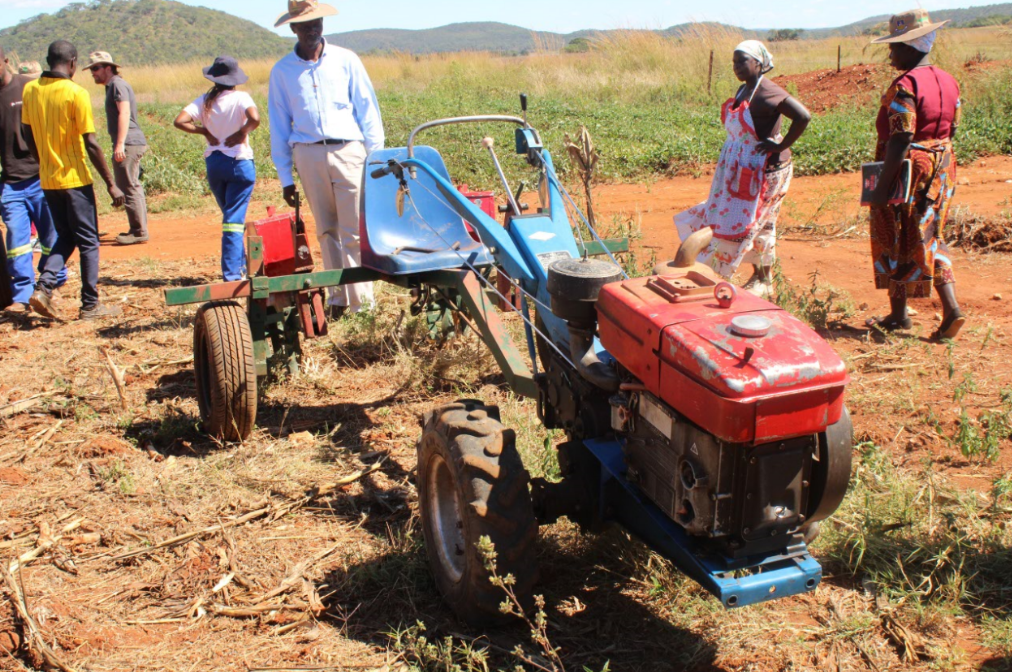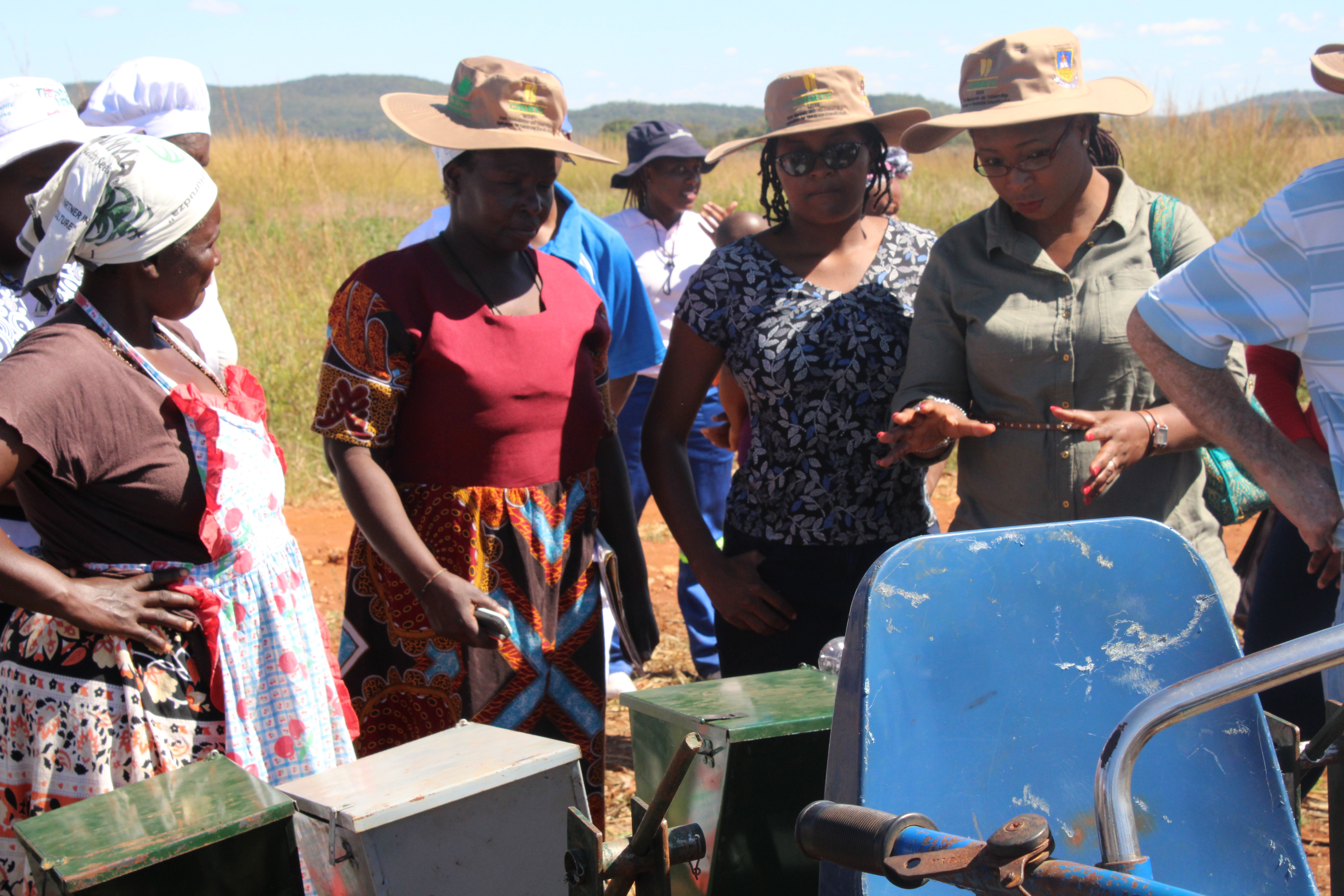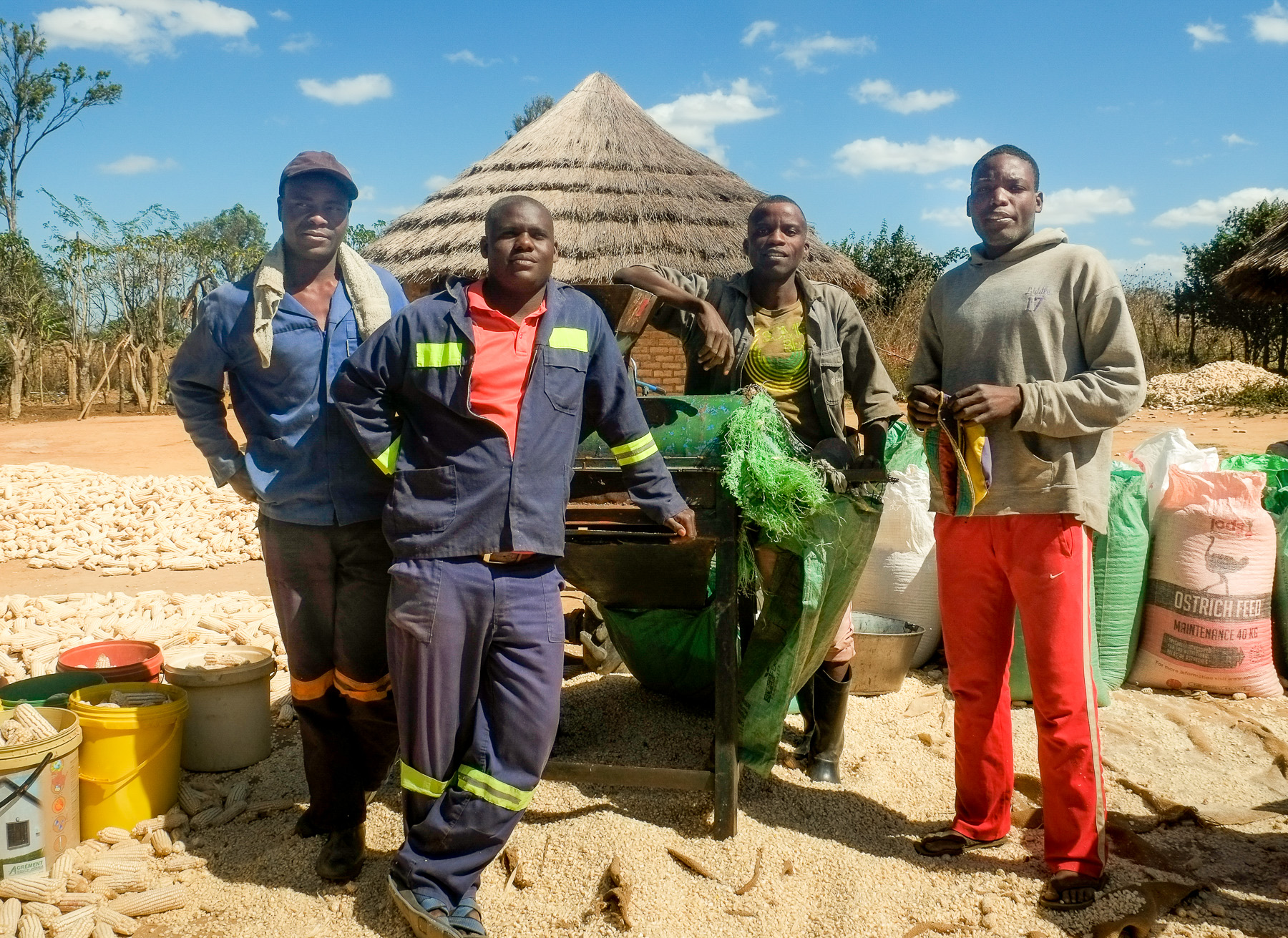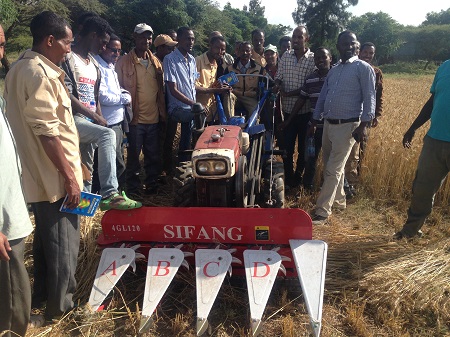
African farmers have ten times fewer mechanized tools per farm area than farmers in other developing regions, according to the Malabo Panel’s mechanization report. For the past six years, the Australian Centre for International Agricultural Research (ACIAR) funded Farm Mechanization and Conservation Agriculture for Sustainable Intensification (FACASI) project has explored ways to address poor access to appropriate mechanization solutions, which is costing smallholders a lot in lost productivity.
“One of the key outcomes of the FACASI initiative has been to present women and youth with pathways into diverse profitable income generating businesses using small mechanization,” says Alice Woodhead, professor in rural economies at the University of Southern Queensland in Australia. Woodhead shared her impressions following a field visit to Makonde, in northwestern Zimbabwe, as part of the FACASI Phase 2 final review meeting held in May. Almost 40 public and private sector project partners from Zimbabwe and Ethiopia attended the event in Harare as well as ACIAR representatives.
Farm machinery: women entrepreneurs thrive on two wheels
Agatha Dzvengwe and Marianne Jaji shared their business experience as two-wheel tractor (2WT) service providers in Makonde. The 2WT, which can be used for multiple purposes from transporting, planting, fertilizer application and shelling, allows them to plant efficiently and provides additional income through hiring out their tractors to neighboring farmers. For instance, during the 2018/19 season, Dzvengwe used the Fitarelli planter to plant ten hectares of maize, two hectares of sugar beans and five hectares of soybeans. Because of the planter’s efficiency, she had enough extra time to hire out planting services to neighboring farmers, earning $100 for one hectare of maize, and double for the planting of soybean or sugar beans.
Marianne Jaji provides 2WT based shelling services, which she says generates steady income for her household, enabling her to contribute to important household decisions. Despite the 2018/19 season being characterized by drought, Jaji was confident that she could still earn a decent income from neighboring farmers engaging the 2WT harvesting services. Other women service providers reported relief from labor drudgery and empowerment. “We have been freed from the burden of toiling in the field. Now that I own a 2WT, the society respects me more.”
“In a business dominated by men, women like Agatha and Marianne can become successful entrepreneurs, providing crucial farming services for the community such as shelling, planting and transport,” explains Bertha Tandayi, a FACASI research assistant at the University of Zimbabwe, where she studies the adoption of 2WT based technologies by women entrepreneurs in Makonde and Nyanga districts.
Small-scale mechanization has higher adoption rates in areas where the most profitable services are provided, such as shelling. The benefits for entrepreneurs and the community are visible and include the creation of employment, home renovations, asset accumulation, livestock rearing, borehole drilling and the purchasing of agricultural inputs.

Sustainable shelling enterprise for Mwanga youth group
Since establishing their enterprise in 2016 following training under the FACASI project, the Mwanga youth group is still going strong in Makonde. During a live demonstration of the medium sized sheller, Masimba Mawire remarked that the shelling business has provided steady and reliable income for the group. Brothers Shepherd and Pinnot Karwizi added that the group has gained from further training in maintenance, facilitated through the FACASI project. “It is evident that the youths have found a way to work as a business team, giving them purpose and to realize aspirations of being a business owner and not just an employee,” said Woodhead.
Of the services provided through the 2WT technologies, shelling services are in greatest demand, as this simple technology significantly reduces the time spent on shelling maize cobs. A medium sized sheller, for example, produces between five and six tons of shelled maize grain per day, over ten times more than manual shelling.
The combined benefits of income, reduced drudgery and high efficiency of the 2WT based technologies have transformed the lives of the youths and women services providers. Confident in their future, they plan to expand their business portfolios, looking at value addition options such as post-harvest processing of other crops.

 Capacity development
Capacity development 

